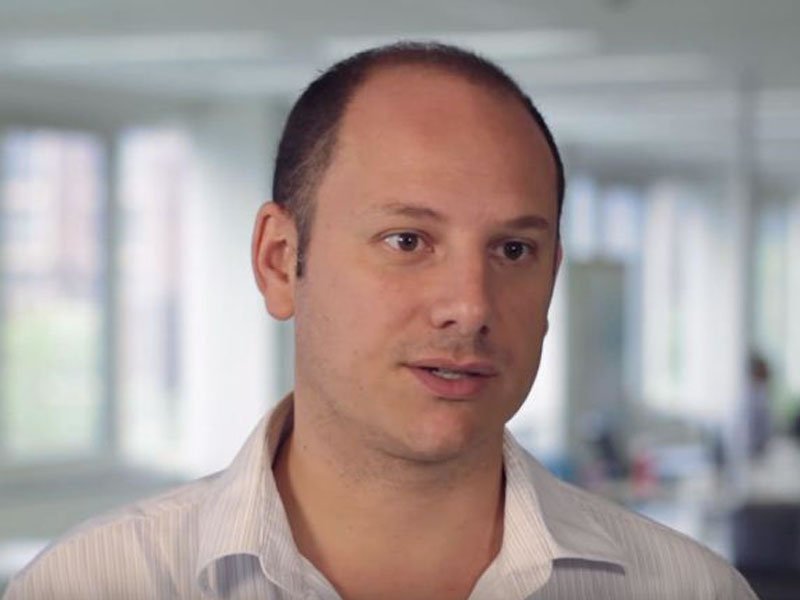The head of fintech hub Stone & Chalk has announced it will take the lead in developing a cyber security research lab in Australia, to “nurture and grow a whole new domestic capability around cybersecurity.”
Stone & Chalk chief executive Alex Scandurra says building cyber security expertise locally will enable Australia to make the sector a national profit centre, rather than a cost centre.
“We want to pull together cyber security experts and key corporates and government agencies from around Australia to come together and identify key opportunities within cybersecurity,” Mr Scandurra said.

“There are opportunities way beyond the fear that is currently being associated with cyber security. We want to work with organisations like Data 61, corporates, universities and startup ventures to commercialise their ideas and create export quality cyber security IP,” he said.
Corporate names he mentioned were KPMG, Westpac and Optus, which he said would be supporting a National Cyber Security Innovation Summit in May to drive the initiative.
“We will convene a number of key players from across the Australian economy that are the heavyweights of cybersecurity, from a policy and practitioner standpoint.”
“We will discuss the pressing issues and the best way we can come together on cyber security. We’ll also be inviting experts on the subject from the US and Israel, as well as ventures from across Australia to discuss various topics related to cybersecurity.”
“That will lead to the launch of an innovation lab towards the end of the year. We want to shift the thinking of individuals and organisations in Australia on cyber security.”
“Cyber security is a matter of national an economic sustainability. There has never been a more important time for Australia to address the nation’s cyber security needs and rise to the incredible global set of opportunities this presents for the commercialisation of Australian innovation.”
Mr Scandurra did not say where the innovation lab will be located, although it is thought Melbourne is its likely base. No details of how it would be funded have been announced.
Stone & Chalk is itself funded by AMP, ANZ, HSBC, IAG, IBM, KPMG, Macquarie Bank, Optus, Oracle, Suncorp, Westpac and Woolworths, amongst others. It provides space for dozens of fintech startups, in the AMP centre in the heart of Sydney’s financial quarter.
Cyber security has received plenty of attention in Australia recently. The Australian Cyber Security Centre (ACSC), first announced by the Gillard Government, opened in Canberra last year, and is holding its own conference on the subject next month.
The centre brings together existing cyber security capabilities across the Department of Defence, the Attorney-General’s Department, ASIO, the Australian Federal Police and Australian Crime Commission into a single location.
It is very much a centre for coordinating the government’s activities in the area, while the innovation lab being promoted by Mr Scandurra would be a commercial venture looking to enable Australian innovation in cyber security.
He announced the initiative at an event held in Stone & Chalk’s Sydney offices featuring one of the world’s top cyber security experts.
Professor Isaac Ben-Israel, head of security studies at Tel Aviv University and chairman of the Israel Space Agency, said in his presentation that computers of the near future will be so powerful that we cannot comprehend the security implications of their usage.
“Quantum computing technology will ensure the continuation of Moore’s Law well into the future,” Professor Isaac Ben-Israel said. “This will mean a range of security challenges unimaginable today. Cyber security is constantly changing as the technology is changing. I seem to change my own definition every two or three years.”
Prof Ben-Israel is credited as the man who first brought the issue of cyber attacks and their potential dangers to the attention of the Israeli Government, which founded the world’s first national cyber security centre in 2002. He was director of the Israeli Defence Forces R&D directorate, raising to the rank of major-general, and was subsequently a member of the Israeli parliament, the Knesset.
He said that the Stuxnet cyber attack on Iran’s nuclear facilities in 2010 was an important development in cyber security, because for the first time it demonstrated that hack attacks could cause physical damage.
It also showed that attacks did not have to be made over the Internet (the Iranian computers were not connected to the Net), and that industrial controllers could also be targeted. He said that it was impossible to confirm that Israelis were behind the attack, as was widely assumed.
Professor Ben-Israel is visiting Australia as a guest of the Israel Trade Commission and Stone & Chalk. He has met with business and government, including Assistant Minister for Innovation Wyatt Roy.
Stone & Chalk is looking to the Israeli experience for inspiration as well as expertise. The country of 8 million people now accounts for 13 percent of world R&D spending on cyber security, in a global market now worth over US$60 billion annually.
Do you know more? Contact James Riley via Email.

